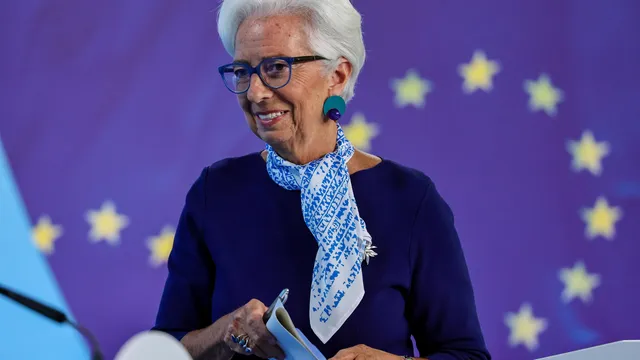According to her, the effective level of U.S. tariffs on European goods remains between 12% and 16%, which is “higher than projected by the ECB.”
The trade deal between the United States and the European Union brought some relief but “certainly did not remove” global uncertainty, said European Central Bank President Christine Lagarde. She made the remarks during a panel at the World Economic Forum in Geneva, AFP reported.
According to her, the effective level of U.S. tariffs on European goods remains between 12% and 16%, which is “higher than projected by the ECB.” She added that President Donald Trump’s plans for sectoral levies on pharmaceuticals and semiconductors remain unclear.
The ECB expects economic activity in the euro area to slow in the third quarter of 2025 after a strong start to the year. Lagarde noted that “global growth remains relatively stable for now,” but warned that this resilience is largely due to “distortions in economic activity caused by tariffs.” She pointed out that in the first quarter importers increased their inventories in anticipation of higher tariffs.
Trump imposed painful tariffs on a number of countries in order to support American manufacturing and reduce the huge trade deficit. He initially threatened 30% tariffs on imports from the EU, but late last month Brussels and Washington reached an agreement on a 15% rate, with the EU seeking exemptions for certain sectors.
In recent weeks, however, Trump has raised the prospect of new tariffs on specific industries, including pharmaceuticals, which account for 20% of the EU’s exports to the U.S. The deal was reached just days after an ECB Governing Council meeting at which interest rates were left unchanged following a series of cuts— a sign of caution as the bank awaits the impact of U.S. tariffs.
In its latest macroeconomic forecast in June, the ECB lowered its expectations for inflation in 2025 to 2% due to lower energy prices and the appreciation of the euro. At the same time, the GDP growth forecast for 2026 was slightly reduced to 1.1%. Lagarde announced that the new projections, to be published in mid-September, will reflect “the impact of the deal between the EU and the U.S. on the eurozone economy.” | BGNES
